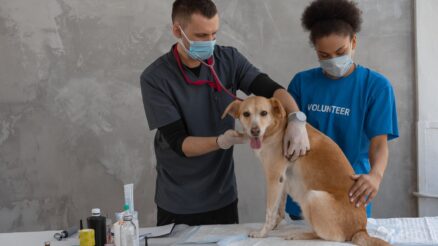Exotic pet ownership is increasing due to their smaller spaces and requirements for upkeep. Alongside their exceptional aesthetics, those sensitive to dogs and cats may find them appealing. Despite the widespread belief that exotic pets are simple to care for, owners should devote the necessary time, energy, and attention to exotic pets in order to meet their specific needs for exotic pet care.
What are the keys to exotic pet care?
Examples of exotic pets include ferrets, guinea pigs, and other small animals like mice and Guinea pigs, reptiles, amphibians, and birds. Round out the list of possible exotic pets for those looking for something a little different. While they’re all gorgeous additions to any home, there are some risks when using them. However, what are the essential factors in exotic pet care?
Components
Apart from certain pet birds, exotic pets have shorter lives than cats and dogs. They are also more fragile and require to be handled with careful consideration. Your little pet may contract an illness or disease without proper exotic pet care. Be aware of the unique needs of exotic pets daily needs before getting one. Diet, housing, and enrichment may differ from species to species, but proper planning can help keep them healthy and happy. Special needs require specialists, so it is best to consult them for more info about your pet’s needs.
Maintenance
The ease in the way exotic pets can be kept is a significant benefit. It is not difficult to house them, but it is essential to provide adequate space. Staying away from direct sunlight and drafts is crucial for their well-being. They are fond of digging and hiding in the mud to explore while interacting with their surroundings in different ways. The controlled temperature of the environment and the specific water elements are essential for snakes, lizards, and amphibians. Install a high-quality heating element or ground pad to keep these creatures warm. Finally, pay special attention to their choices regarding intimacy or companionship. Always consult experts such as reptiles veterinary care for more information.
Habitat
Many exotic animals possess a preferred toilet area; however, they cannot use it when eating, drinking, or simply navigating their home. A substrate or a cover, together with a litter pan, aids in the absorption of mess. Bedding stops the growth of bacteria and ensures that pets are warm and cozy. The bedding that has been soiled should be removed and replaced regularly. Use a species-safe cleanser and replace the bedding and substrate inside your cage every two weeks. Regardless of size, it is still best to consult a specialist from a facility like Hattiesburg and Wiggins Animal Hospitals for further information.
Hygiene
It’s vital to remember that many exotics can transmit Salmonella or E. coli germs. Hands should be washed often. Exotic pet care depends on a thorough understanding of their nutritional needs to succeed. Experimenting with their diet is not advised. Every day, frequently more than once, you must offer clean water before attaching water bottles and food plates. Clean and refill them.
Conclusion
Many exotic pets require constant care and attention to stay content and engaged. There is a chance that others will be upset about being lifted or carried. Maintaining physical and mental well-being is vital by including environmental enrichment opportunities within the confines of an enclosure, habitat, or some other form of housing. The best care for exotic pets is achieved or broken through artificial plants, mirror stones, wheels, toys, and species-specific toys.


